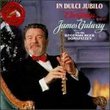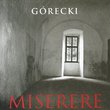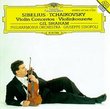| All Artists: Samuel Barber, Antonin Dvorak, Richard [1] Strauss, Bruno Walter, New York Philharmonic Title: Bruno Walter Edition: Strauss/Barber/Dvorák Members Wishing: 0 Total Copies: 0 Label: Sony Release Date: 5/16/1995 Genres: Dance & Electronic, Classical Styles: Forms & Genres, Theatrical, Incidental & Program Music, Historical Periods, Modern, 20th, & 21st Century, Symphonies Number of Discs: 1 SwapaCD Credits: 1 UPC: 074646446621 |
Search - Samuel Barber, Antonin Dvorak, Richard [1] Strauss :: Bruno Walter Edition: Strauss/Barber/Dvorák
 | Samuel Barber, Antonin Dvorak, Richard [1] Strauss Bruno Walter Edition: Strauss/Barber/Dvorák Genres: Dance & Electronic, Classical
|
Larger Image |
CD DetailsSimilarly Requested CDs
|
CD ReviewsGreat performance, but a caveat... Xyp | Cincinnati, OH | 08/24/2005 (4 out of 5 stars) "Let me be another in the long line of people to shower praise on Bruno Walter: it seems that every time the man stepped on the podium to record, the results were at the very least exemplary- and when he was at his best, the man couldn't be beat. It is unfortunate that many of his recordings were made before the advent of stereo, and that is my only caveat for the potential buyers of this disc. Many of the Bruno Walter Edition discs are in warm Columbia stereo that will bring you back again and again- but there are also a few that aren't, and this is one of them. Know that you will be getting mono sound that bends under the weight of this great conductor and orchestra in the more intense sections of the Strauss and Barber. For historic readings of the Strauss in stereo, try either the Szell (sony) or Reiner (rca). I do recommend this CD, but only to those enthusiasts of these particular pieces or those who do not mind dated sound." Walter bet and won except for Dvorak! Hiram Gomez Pardo | Valencia, Venezuela | 12/16/2008 (4 out of 5 stars) "At first glance, to relate Richard Strauss with Bruno Walter arouses all kind of questions. However when a gentle friend made me this gift two days ago, I decided by myself to leave aside any prejudice and listen it with devoted attention. The result was surprisingly effective. Don Juan is fluid, expressive and rewarding. Walter creates the required atmosphere to show us the mystery, charm and tragedy of this mythic personage. Death and transfiguration exudates the nerve and poetic elusiveness like just a few versions (Victor De Sabata `s version with the Vienna Philharmonic in 1953 in Salzburg is my first choice, by far). Barber's First Symphony was another formidable finding. In honor to the truth I didn't know this work, but the approach given by Mr. Walter was excellent. The Opus has no cuts between its four movements. There are sublime moments and once I listened I wondered why this work is not performed with major frequency in the concert halls. Finally I must confess Dvorak's reading was entirely disappointing. I really think Walter felt uncomfortable and absolutely out of focus with this famous composer. A mere comparison with Vaclav Talich, Vaclav Neumann or Rafael Kubelik -for instance- carves in relief the idiomatic misunderstanding and the lack of expressive affinity between composer and director. This was the only stain in this album. " It's odd to have the Barber, but everything is superlative Santa Fe Listener | Santa Fe, NM USA | 12/15/2005 (5 out of 5 stars) "There is one transcendent performance on this CD, the Strauss Death and Transfiguration, recorded in excellent mono sound on the same day in 1952 as the Don Juan preceding it. The Don Juan is fine--not fierce or virtuosically beating its chest as we came to expect from Karajan onward. Instead, Walter gives us smaller-scale musicmaking with expert phrasing and a few abrupt jolts (it's hard for this piece not to play itself once the rocket is launched).
The Tod und Verklarung is a much trickier piece, one that can easily sink into bathos or sanctimony. Walter has a magic touch, though. He actually sustains interest in the opening section, with its agogic heartbeats and dying murmurs. The stroke of death and subseeqquent exaltation are honestly moving--how rare. Walter's urgent tempos help, and the NY Phil. plays superbly. The music of Samuel Barber was conducted by all the major maestros, including Toscaninni, around WW II before he had the misfortune to be labeled a harmonic reactionary. Walter gives an intense, committed reading of the Sym. #1 (mono, 1945) with the wartime NY Phil. sounding quite good, and the sonics as well. Barber's lyric gifts were strong from the start, although his version of modernism was barely ahead of Strauss's, if at all. There's too much semi-amateur writing for this symphony to really endure. The colleciton is capped by a single Dvorak Slavonic Dance from 1941 (recorded on the same day as the excellent Moldau found on another Bruno Walter Edition CD). It's a four-minute afterthought, especially when one hears how surprisingly stodgy it sounds. That aside, this is one of the high points in the Sony Walter series and his only venture into Richard Strauss." |

 Track Listings (7) - Disc #1
Track Listings (7) - Disc #1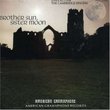

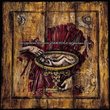


![Across The Universe [Deluxe Edition]](https://nationalbookswap.com/cd//m/51/1251/1241251.jpg)
